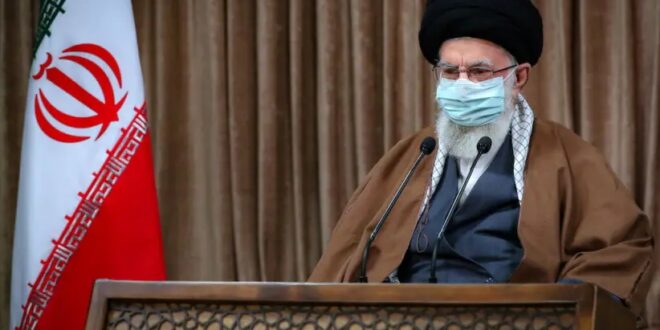Does Iran’s Ayatollah Khamenei want to see the outcome of June’s presidential election before agreeing to a new nuclear deal?
The signs were unmistakable, but they have only become more pronounced.
There may be an interim US-Iran deal to move toward returning to the nuclear deal before the May 21 and June 18 deadlines – but if there is not, it will be because the Islamic Republic wants to move slower than America.
May 21 is when the temporary three-month deal between Tehran and the International Atomic Energy Agency (IAEA) lapses. It gave international inspectors most of the access they needed to Iranian nuclear sites despite the ayatollahs’ anger that the Biden administration had not yet removed sanctions.
June 18 is when Iran is due to hold elections, where many predict the “hardliners” will wrest the presidency from the “pragmatists.”
While for Israeli purposes there may not be a huge difference between the two Iranian camps, the pragmatists – substantively for US and EU purposes – are, at least, willing to talk and make deals.
The conventional wisdom after four rounds of US-Iran-world powers negotiations over recent months is that all sides were pushing hard for a deal before these deadlines.
This could help the pragmatists, currently in power, to maintain their hold on the presidency – something the US and the EU definitely prefer.
But Iran’s Supreme Leader Ayatollah Ali Khamenei may have other plans.
After a recent round of talks, Russia and China sent out very positive messages, the US was lukewarm-positive, and Iran President Hassan Rouhani said that up to 70% of the issues were already agreed upon and that a new era of détente might just be over the horizon.
But Rouhani is not the real decider in Tehran: Khamenei is.
In a briefing to reporters, a top US negotiator with Iran repeatedly said that all the issues have been fleshed out and that the only real question now is whether Iran actually wants a deal in the coming weeks.
But what if Khamenei doesn’t?
What if he prefers a deal after the election so that the hardliners whom he prefers can claim victory?
Perhaps he wants to rob the pragmatists of a big victory point going into the June 18 election.
Of course, there are still two weeks before May 21 – and since that was an artificial deadline, there are still five weeks to the June 18 deadline.
There still may be a deal before then, and these weeks may see the Islamic Republic playing chicken until the last moment to make sure it can squeeze the most out of the US. That certainly was the pattern for the 2015 Iran nuclear deal (JCPOA) negotiations.
But perhaps Khamenei never wanted to cut a deal until after elections at all.
Maybe all of this was just to feel out Biden’s team so that after the Supreme Leader’s favored hardliners win the presidency, he will know how and when to cut the deal.
It is also possible that there may be no deal and that Khamenei was negotiating to change the narrative, weaken Western resistance to Iran’s violations and use the lack of a deal to blame more things on Rouhani and his pragmatists.
In any case, Washington has made it clear it is ready for a deal by May 21. The only question now, is what Khamenei wants.
 Eurasia Press & News
Eurasia Press & News



